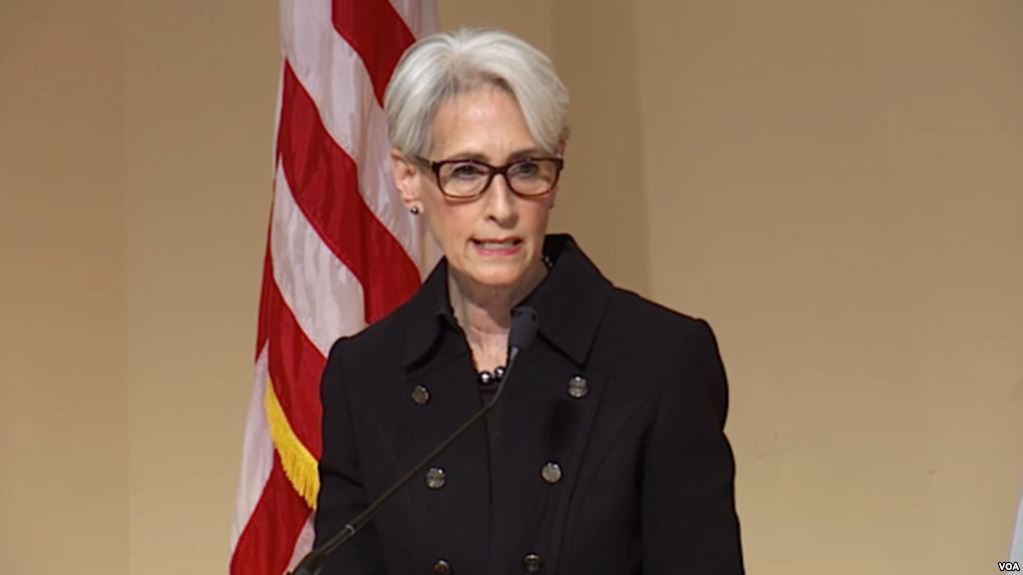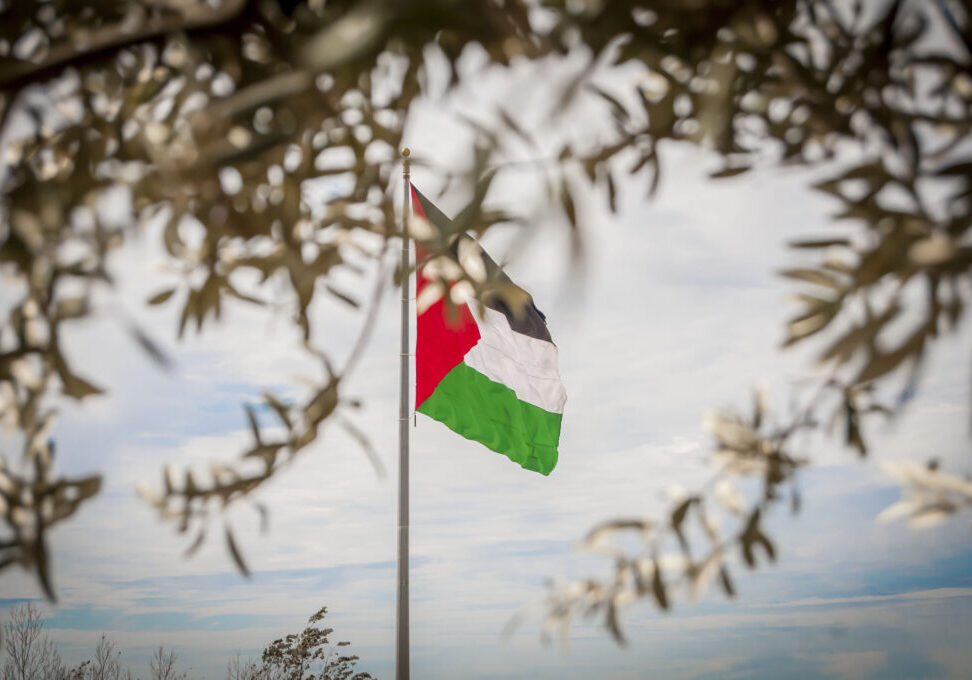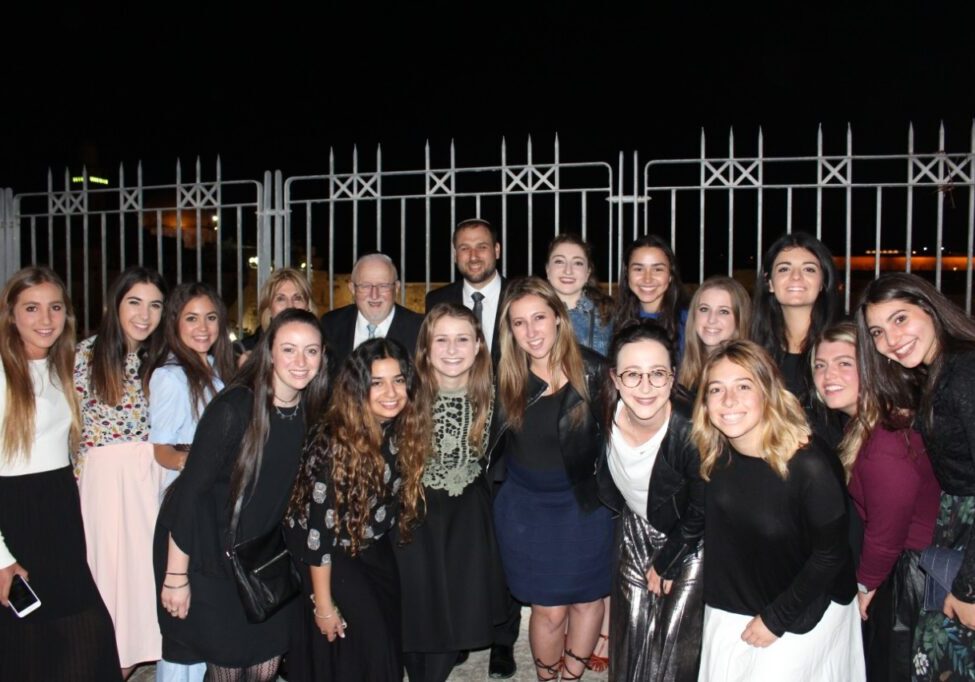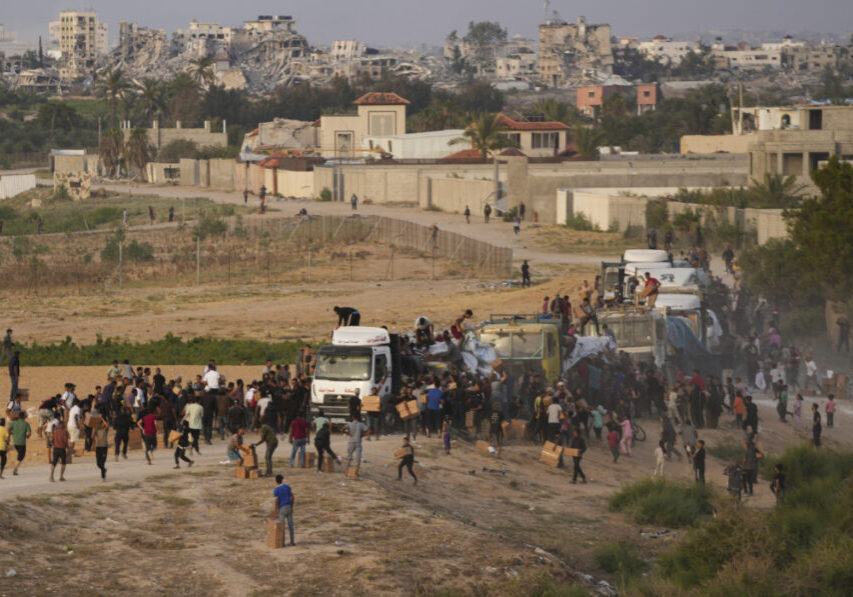Australia/Israel Review
Noted and Quoted – December 2018
Dec 3, 2018 | AIJAC staff

Sherman tanks
PM Scott Morrison’s announced review into Australian backing for the Iran nuclear deal saw the Age newspaper (Oct. 20) run a report from journalist David Wroe canvassing the opinions of only those supportive of the Joint Comprehensive Plan of Action (JCPOA).
This included Wendy Sherman, who was the Obama Administration’s chief negotiator of the deal, criticising US President Donald Trump’s withdrawal because he failed to outline “‘a strategy that will get to some better place’” than the “painstakingly craft[ed]” 2015 deal.
Fellow Obama negotiator Richard Nephew was also quoted saying it was difficult for other countries to join Trump because Iran was complying with the deal and withdrawal was just as likely to see Teheran restart its program.
The Sydney Morning Herald ran Wroe’s longer online report where Sherman acknowledged Iran was supporting “terrorist groups” in the Middle East, which was “very concerning”, but argued that “the removal of a nuclear capability took away its greatest leverage.”
In fact, the deal gave Iran access to billions of dollars that supercharged its support for terrorist groups in Syria, Lebanon, Yemen and Iraq.
The SMH and online reports included comments from Israel’s Ambassador to Australia Mark Sofer pointing out that “Israeli intelligence had shown ‘day in and day out that the Iranian regime has lied and has cheated’ on its nuclear program” and that “they are still continuing to hide nuclear facilities. They are still continuing to build nuclear facilities. You have to look at it from our point of view … They are striving for nuclear weaponry on the one hand and the eradication of the state of Israel on the other hand.”
Beyond Trump and Israel
AIJAC’s Colin Rubenstein welcomed the Morrison Government’s Iran policy review, noting that, “a change in Australia’s view… would also likely be welcomed by Sunni Arab states… all of whom view Iran as their most serious regional threat. It is worth noting that Australian trade with these countries dwarfs that with Iran.”
He listed the flaws of the JCPOA – which he said merely “delays” and doesn’t prevent Iran from acquiring nuclear weapons.
These include “sunset provisions that expire in 10 to 15 years”, authorising Iranian research on advanced centrifuges and testing of ballistic missiles which could carry nuclear weapons, whilst denying the International Atomic Energy Agency the ability to conduct “anytime anywhere” inspections, including of Iranian military sites. He also noted that highly respected experts who have assessed the Iranian nuclear archive captured by Israel concluded that Iran had not offered a full disclosure of its past nuclear weapons research program as required under the JCPOA, Daily Telegraph (Nov. 2).
Sanctions start
US reimposition of sanctions on Iran saw the Australian (Nov. 5) urge European countries to also review their JCPOA support.
The paper said, “Trump wants the new sanctions to force Iran to agree to negotiate a new deal that puts inviolable limits on its nuclear and missile-building programs. He wants…Tehran to halt its aggressive, hegemonic actions across the Middle East in Syria, Yemen and elsewhere, and an end to its support for the Hamas and Hezbollah terrorists hellbent on annihilating Israel, as well as conspiracies such as those by official Iranian entities disclosed recently and aimed at carrying out state-sponsored terrorist attacks in Denmark and France against Iranian exiles.”
Meanwhile, in an alternate reality, Guardian Australia (Nov.6) columnist Simon Jenkins disparaged the sanctions, claiming that “The US’s unilateral breach of the deal is not just an offence against international order, and probably law… the sanctions will strengthen Tehran’s anti-democratic military and religious centres of power against the more liberal commercial ones. This will drive Iran further towards Russia and towards involvement in the region’s Islamist conflicts.”
Former US President Obama passed the deal by presidential edict, so it’s doubtful withdrawal is illegal. It’s also hard to see how much more havoc Iranian meddling in the wider region could cause.
Earlier, the Age (Nov. 1) criticised PM Morrison for “play[ing] straight from Trump’s songbook two weeks ago” by “attack[ing] a historic six-nation agreement that has stopped Iran building nuclear weapons”.
Leibler Libelled
AIJAC national chairman Mark Leibler was the victim of an unprofessional online report by Fairfax correspondent Latika Bourke (Oct. 19) on easily disproved allegations in former PM Kevin Rudd’s second volume of memoirs The PM Years.
Bourke’s report said the book claims that in a June 2, 2010 meeting to discuss the misuse of Australian passports by the Mossad, Leibler said, “‘Julia [Gillard] is looking very good in the public eye these days, Prime Minister. She’s performing very strongly. She’s a great friend of Israel. But you shouldn’t be anxious about her, should you, Prime Minister?’” According to Bourke’ story, “That dinner was held on June 3. Three weeks later, Ms Gillard toppled Mr Rudd as prime minister”.
And that was the end of Bourke’s report. No approach was made to Leibler for comment in advance of the story going online on Oct. 19.
When the Age and Sydney Morning Herald ran the story ran on Oct. 20, they belatedly included Leibler’s repudiation of Rudd’s “far-fetched conspiracy theories” and the implication “that I or some mythical pro-Israel conspiracy somehow had a role in Julia Gillard’s success in overthrowing Mr Rudd” in the Labor leadership coup. “Nothing even approximating the threat quoted in the article was said by me or anyone else” he said, adding the then-prime minister had merely been sensitive and defensive when Mr Leibler raised Ms Gillard’s record on Israel.”
The Australian’s “Cut and Paste” section on Oct. 20 weighed in on these claims, noting the long list of people former PM Rudd has accused over the years of responsibility for deposing him in 2010.
Petering out
As long-time “Noted and Quoted” readers will know, ABC Radio host and Adelaide Advertiser weekly columnist Peter Goers, has produced his fair share of anti-Israel diatribes, including saying “Jesus was a Palestinian born under another occupation”.
So, it was unsurprising that his Oct. 21 column revelling in his “love” of Yiddish included a nasty line that “Holocaust is not a Yiddish word but it tragically defines Jewry. Nakba is not a Yiddish word but it tragically defines the Palestinians. Both words mean catastrophe.”
The Oxford Dictionary says “Holocaust” is of Greek origins, meaning “wholesale sacrifice or destruction especially by fire,” which is pertinent to the Nazi death camp crematoria that burnt the remains of Jewish victims. It does not mean “catastrophe”.
Further, Goers attempt to conflate the two tragedies as equivalent is morally shameful.
Every Jew who was under Nazi control was marked for death. In contrast, the Palestinian “catastrophe” was in their leaders rejecting the 1947 Partition Plan in favour of a war which led to the displacement of Palestinian Arabs, and then refusing to make peace with Israel or to even establish a state on the West Bank and Gaza after hostilities ended.
The Yiddish word for that kind of brazen effrontery, Peter, is “chutzpah”.
Corbyn Knight
Anti-Israel writer Antony Lowenstein’s review of Jeff Sparrow’s new book Trigger Warnings claimed “recent attempts by Theresa May’s government and many in the corporate media to falsely accuse [UK Labour party leader Jeremy] Corbyn and his team of rampant anti-Semitism, a classic ‘culture war’ tactic, has done little to affect his public standing.”
Most of the claims of antisemitism swirling around Corbyn have emanated from Labour MPs and senior officials, including former Labour PM Gordon Brown, who are deeply unhappy with the Opposition Leader and many of his radical followers. As for his popularity, a recent survey showed 38% of Britons think he is antisemitic, Australian (Nov. 10).
So Camp
Fairfax correspondent Michael Bachelard reported on his visit to Ain Al-Hilweh, a Palestinian refugee camp in Lebanon, which is divided into sections under the control of machine gun wielding Palestinian factions.
According to Bachelard, “when the state of Israel was being formed in 1948, and a war with the Arab world raged, hundreds of thousands of Palestinians fled their homes into neighbouring Lebanon and set up temporary camp. Uneasily, Lebanon let them stay. And as they stayed, their children grew up, and married. And then there were grandchildren, and great-grandchildren, all of whom are still recognised by the United Nations as refugees.”
Actually, only 100,000 or so Palestinian Arabs originally went to Lebanon.
The camp, which is “behind concrete walls administered by an unyielding Lebanese state which believes these people to be a demographic problem, and so is adamant that these men and their families will never become citizens. They live largely on the charity of the United Nations and a genuine, frustrated dream of returning to a Palestinian home they have never visited on land now governed by Israel,” Age/SMH (Nov. 10).
Catching Abbas
Kudos to the Australian Financial Review (Nov. 15) for running a Bloomberg report that avoided the tired “Israel is to blame” line for Gaza’s economic difficulties and explained how Palestinian Authority President Mahmoud Abbas’ meddling is threatening to spark a new war between Hamas and Israel.
It noted that “Abbas [has refused] to pay Gaza’s power bills, opposing diesel shipments from Qatar and slashing the salaries of 70,000 Gaza civil servants he is responsible for paying. The result: A population of 1.8 million people trapped inside a Mediterranean enclave that is becoming more and more volatile. Hamas has sought to channel Gazans’ growing dissatisfaction with their plight in the only direction allowed – against Israel, in a campaign of tightly managed border protests that have grown increasingly violent since they kicked off in March.”
The article quoted analyst David Makovsky, who was involved in the failed Obama era peace talks, saying that Abbas wants “violence and chaos in Gaza” in the “hope that that other countries will step in and beg him to retake control of Gaza”.
What Palestinian human rights violations?
The Australian (Nov. 1) was one of the few Australian media outlets to acknowledge a landmark report by Human Rights Watch (HRW) – which has a long history of obsessive anti-Israel reports – accusing both the Palestinian Authority on the West Bank and Hamas in Gaza of systematic human rights abuses, including arbitrary arrest and torture.
The Wall Street Journal story said the report – Two Authorities, One Way, Zero Dissent – “details cases of horrific violence and repression… In the West Bank, detainees tell of being punched, kicked, beaten with batons, slammed against walls, and electrically shocked until they confess.”
Offences that led to such treatment were often as trivial as critical Facebook posts.
HRW said, “torture is governmental policy for both the PA and Hamas” and “since this likely constitutes a crime against humanity, HRW recommends that the International Criminal Court open an investigation.”
The ABC – with a dedicated Middle East correspondent – did not cover HRW’s report.
Normal transmission restored
The ABC had plenty of air-time to give to visiting Israeli human rights lawyer Sharon Abraham-Weiss, head of the Association for Civil Rights in Israel (ACRI), to warn about the alleged increasing threat to civil liberties in Israel.
Sponsored by the Australian branch of the left-wing NGO New Israel Fund, which generally brings out speakers who are highly critical of both the Israeli government and society, on ABC Radio National “Law Report” (Nov. 13), Abraham-Weiss pointed out that Israel has no constitution but passed a series of Basic Laws in 1992 to protect individual rights.
These rights are under threat, she said, by a proposed bill that would empower the legislature to ignore Israeli Supreme Court rulings found to be incompatible with the Basic Laws.
RN host Damien Carrick said the UK, with no constitution, has courts which can only advise and “suggest changes” to bills and asked, “maybe the idea that it’s taking you down the path to an illiberal democracy, that’s a bit of stretch?”
She replied, “maybe it is a bit of a stretch but I’m looking all around the world,” citing Hungary, Turkey and Poland “and we feel here that we are having a shrinking democratic space in our ability to express our freedom of speech and in the independence of institutions.”
Abraham-Weiss criticised the controversial “Basic Law: Israel as the Nation-State of the Jewish People” that says Israel is the nation-state of the Jewish people and only Jews have the right of national self-determination in it, because “there is no mention of democratic values” in the law. However, she did acknowledge that Israel’s government is spending a lot of money to lift the living standards of Israeli Arabs.
Abraham-Weiss was also interviewed on ABC Radio National “Breakfast” (Nov. 19) and ABC TV “The World” where the questions were more concerned with her views on Gaza and shifting Australia’s embassy from Tel Aviv to Jerusalem. To her credit, she said those were political issues which she would not comment on, but noted that Israeli communities living adjacent to Gaza were also suffering from rocket fire and that Jerusalem is Israel’s capital.
The Madness behind a Massacre
The tragic shooting attack by Robert Bowers on Oct. 27 at a Pittsburgh synagogue that left 11 Jews dead was condemned across the Australian media, but the meaning of the incident was hotly debated.
Articles in Fairfax papers tended to focus on right-wing extremism and the alleged role of US President Trump – for example, (Oct. 30) US writer Julia Ioffe argued that Trump’s reluctance to condemn hate speech and incidents had created an atmosphere that let his supporters among the alt-right “easily make certain inferences”.
The Courier Mail (Oct. 29) condemned the attack and also largely focused on right-wing antisemitism.
In the Herald Sun (Oct. 30), Alex Ryvchin of the Executive Council of Australian Jewry noted that the shooting was a chance for “ideologues” to “pick their cause” and further their own agendas. He dismissed those who wanted to link the attack to Israel’s “boundless evil”, saying Bowers “didn’t care a jot for the Palestinians.”
Antisemitism transcends left and right distinctions, Ryvchin wrote, and “condemnations of Trump’s jingoism and dubious associations, right and necessary as they are, ring hollow unless one is equally reviled by the racism of [Nation of Islam’s Louis] Farrakhan and the associations of Jeremy Corbyn. The condemnation of antisemitism must be a matter of basic decency and not partisan politics.”
Also making the point that antisemitism thrives across the political spectrum was News Ltd columnist Andrew Bolt (Oct. 29) who noted that in 2017, nearly 40% of racially or religiously motivated violence in France was committed against Jews, despite Jews making up only “1 per cent of the population,” whilst senior Labor frontbencher Tony Burke had supported a visa application for a Syrian preacher who had publicly declared “all the Jewish people are combatants.”
Academic Jeffrey Herf explained that antisemitism can exist “on opposite ends of the political spectrum” because it “has a conspiratorial mindset at its core that leads to the use of violence to attack the supposedly powerful Jew, indistinguishable from the supposedly evil Zionist,” Australian Financial Review (Nov. 2).
Tags: Australia, Media/ Academia






